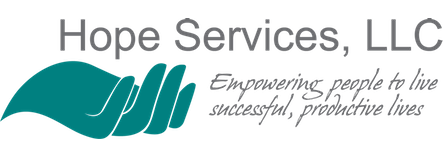Back to the Patient Handbook Main Menu
Back to Our Services Menu
Evidence Based Practices
All of our Evidence Based Practices are offered in each department.
Trauma Focused Cognitive Behavioral Therapy (TFCBT)
- In this model, children and parents learn new skills to help manage and resolve distressing thoughts, feelings, and behaviors related to their trauma.
Parent Child Interaction Therapy (PCIT)
- This model works with children between the ages of two-and-a-half and seven with their caretakers.
- There is an emphasis on strengthen the bond between parent and child while also providing parents with appropriate discipline strategies.
Positive Parenting Program (Triple P)
- This model is designed to prevent and treat behavioral and emotional symptoms in children birth to twelve.
- It aims to prevent problems in the family, school, and community and to improve family interactions.
Structured Psychotherapy for Adolescents Responding to Chronic Stress (SPARCS) (Group Therapy)
- Group Sessions (age 12-21) focus on gaining coping strategies and teaching adolescents how to make choices mindfully even in the face of ongoing trauma and/or chronic stressors.
- Adolescents learn concrete steps to help them better manage the moment and make it more likely that they can get what they want and need when under stress and struggling with conflict in their relationships.
Cognitive Behavioral Therapy (CBT)
- This model focuses on helping patients identify unhealthy thoughts and learn to make adjustments to their thinking which will impact the way they respond in situations.
Eco-Systemic Structured Family Therapy (ESFT)
- This model works with the entire family.
- Staff will help families understand unhealthy interactions and learn to interact with one another in healthy ways.
Child Parent Psychotherapy (CPP)
- In this model, the clinician will work with the child (age 0-5) who has experienced a traumatic event and primary caregiver.
- The aim is to support and strengthen the relationship between them in order to restore the child’s sense of safety, attachment, and appropriate affect.
- CPP will also improve the child’s cognitive, behavioral, and social functioning.
Cognitive Processing Therapy (CPT)
- In this model, the clinician will work with individuals age 16 and older to help them learn new ways to think about traumatic events by helping them to identify and change distressing thoughts related to the trauma.
Eye Movement Desensitization and Reprocessing (EMDR)
- This model treats mental health conditions that happen because of memories from traumatic events in your past.
- It’s best known for its role in treating post-traumatic stress disorder (PTSD), but its use is expanding to include treatment of many other conditions.
Dialectical Behavior Therapy (DBT) Group
- This is a group-based model for teens led by a trained therapist and meet weekly for several months.
- In each session, teens learn and practice specific skills related to one of the four modules of DBT:
- Emotion regulation
- Interpersonal effectiveness
- Distress tolerance
- Mindfulness
- The skills are taught through a combination of didactic teaching, group discussion, and experiential exercises.
